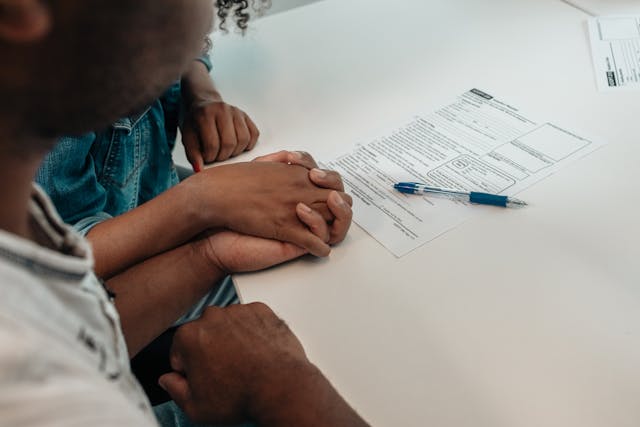Separation or divorce can be especially challenging when it comes to making decisions about children. According to UNICEF, globally, around 96 children per 100,000 live in residential care or institutions instead of with their parents, indicating how separation can impact children’s lives worldwide.

While these numbers show the global impact, it’s equally important to understand how custody laws work in Maine. Knowing when to involve a lawyer and what the court considers makes a huge difference. This guide helps parents seek clarity on their parental rights and how to protect their children’s best interests.
- Parental Rights and Responsibilities (PR&R)
In Maine, “child custody” is also known as parental rights and responsibilities (PR&R). If a married or an unmarried couple opts for a divorce or separation, decisions about the children’s rights and obligations are a part of the divorce or separation case. Either parent can initiate a PR&R case to establish legal arrangements. These responsibilities include decisions on where the child lives, how major life decisions (travel, education, medical care, etc) are made, and how much time each parent gets to spend with the child.
- How the Court Makes Decisions
Maine courts use a standard known as the “best interest of the child” to decide what arrangements will best serve the child’s well-being. Key factors include:
- The child’s age and their developmental needs
- The child’s relationship with each parent
- The ability of parents to cooperate
- Whether there have been instances of domestic violence or abuse
- Stability of each parent’s home environment
- The child’s preference, if they are old enough to express one
The court hears witness accounts, reviews evidence, and considers expert opinions before rendering its verdict.
- Types of Decision-Making Arrangements
Maine provides three main parental rights and responsibility (decision-making) setups: shared, allocated, or sole.
- Shared: Both parents have equal say on major issues like medical care, religion, residence, and education. They must make decisions together.
- Allocated: This divides the different decision-making responsibilities. For example, one parent might make healthcare decisions, the other schooling decisions.
- Sole: One parent has full authority over major decisions; However, the other parent may have different responsibilities like paying child support.
- Contact Schedule and Living Arrangements
If parents live near each other, “shared primary residence” may be possible, which means the child lives with both parents for nearly equal time. To support this arrangement, parents must create a contact schedule that fits the child’s age, medical, school routine, developmental or medical needs, and caregiving history.
However, if there are safety risks or domestic violence concerns, the court may incorporate special precautions like supervised visits, restrictions on overnight stays, or neutral exchange locations to ensure the child’s safety.
- Financial Responsibilities
Maine law requires that at least one parent maintain health insurance for the children. Uninsured medical expenses are usually shared, with one parent possibly responsible for the initial cost. For example, if a child needs a doctor visit which costs $300, parent A pays the first $100 (initial cost), and the remaining $200 is split between parent A and parent B based on their incomes. In addition, tax-related issues, such as who claims the child as a dependent, are also decided. Usually, the parent with primary residence claims the child, unless parents agree otherwise.
When to Consult a Lawyer
Involving a family lawyer in Maine can help ensure your rights are protected and everything is set legally. For example, working with an experienced family lawyer in Portland, Maine, can help ensure your parenting plan meets all legal requirements. A lawyer can further:
- Prepare and respond to PR&R cases
- Help with modifications if circumstances change later. For example, both parents agreed on weekend visits, but later the child developed a medical condition requiring extra care. A lawyer can help modify the agreement so the schedule fits the child’s new needs.
- Ensure safety concerns or special needs are clearly presented
- Draft parenting and contact schedules that courts will approve
Endnote
In Maine, child custody decisions prioritize the child’s well-being. It focuses on relationships, stability, and safety. Whether you are in Portland or anywhere in Maine, understanding the law and working with a lawyer can help, as they ensure your child’s best interests are considered throughout the process.